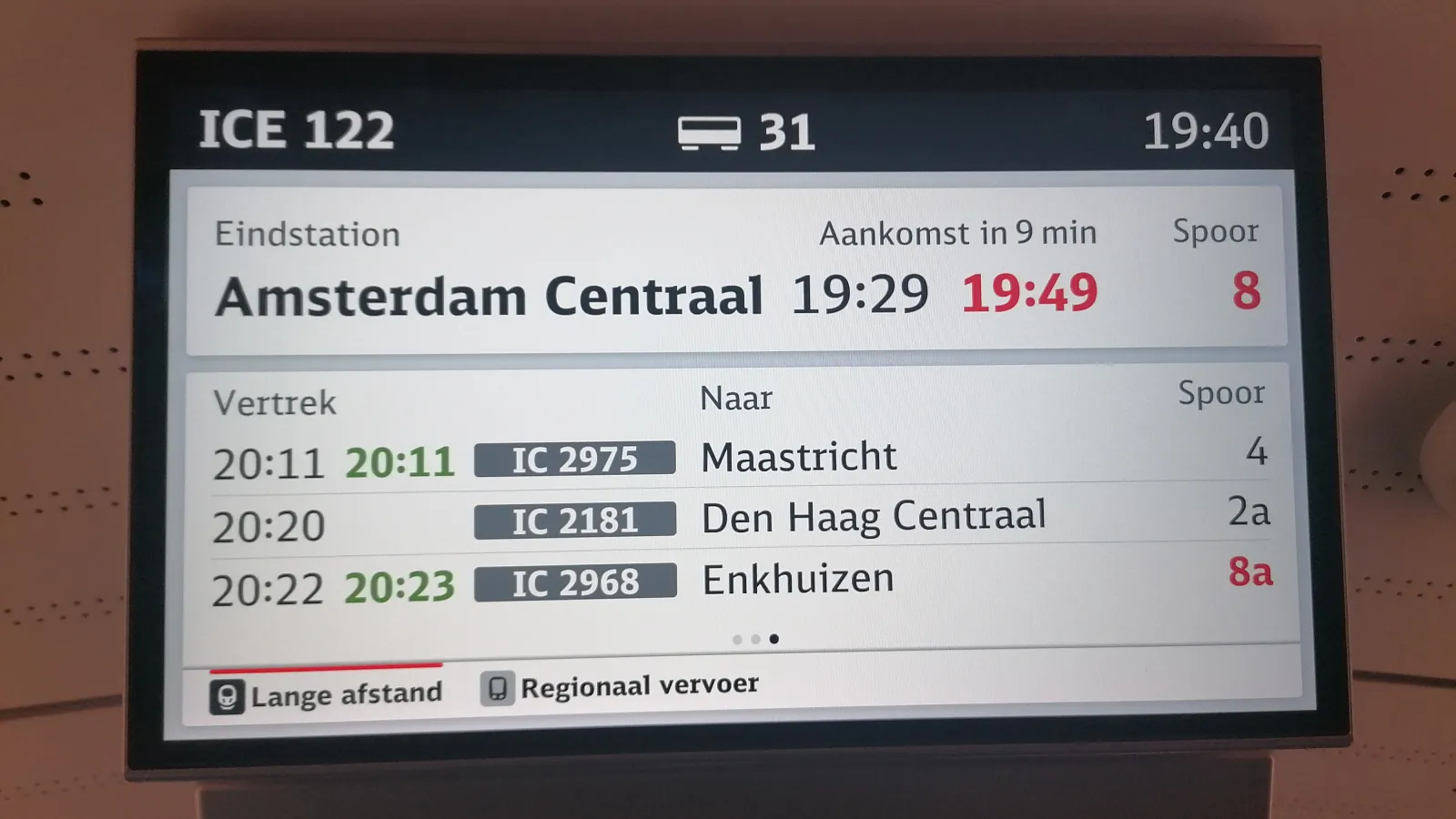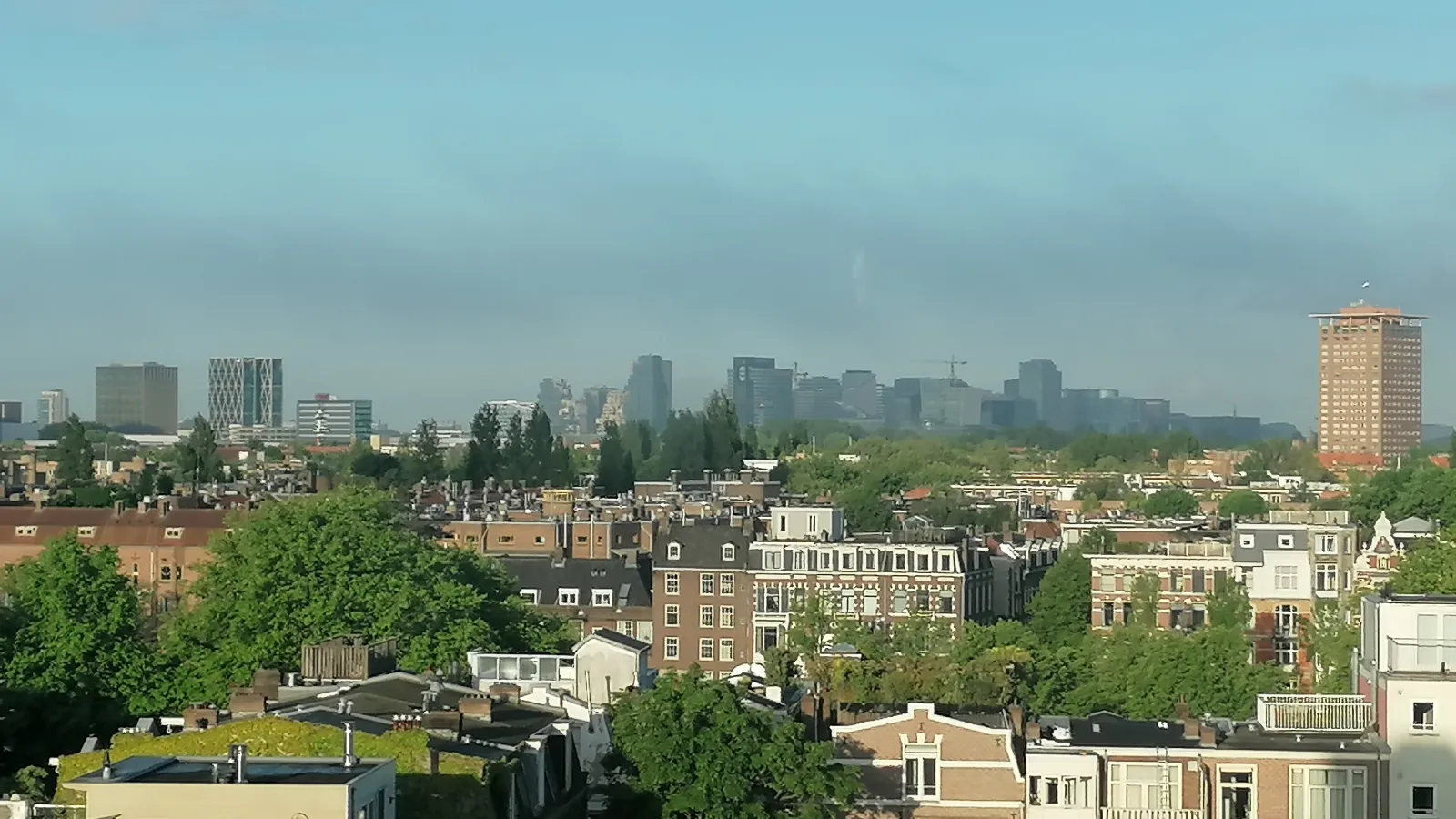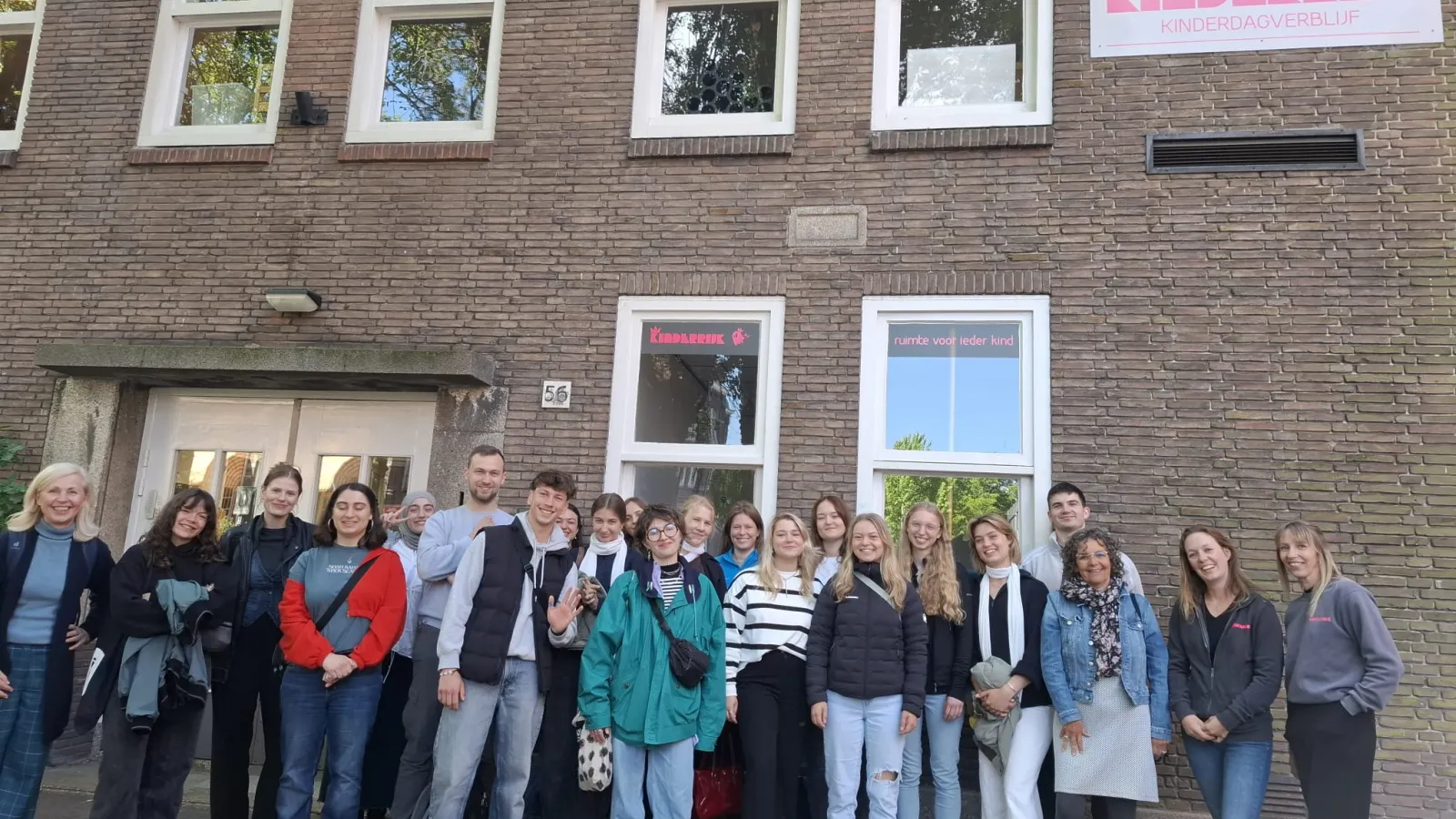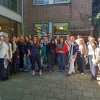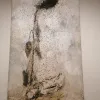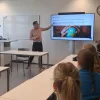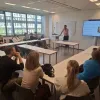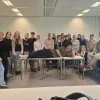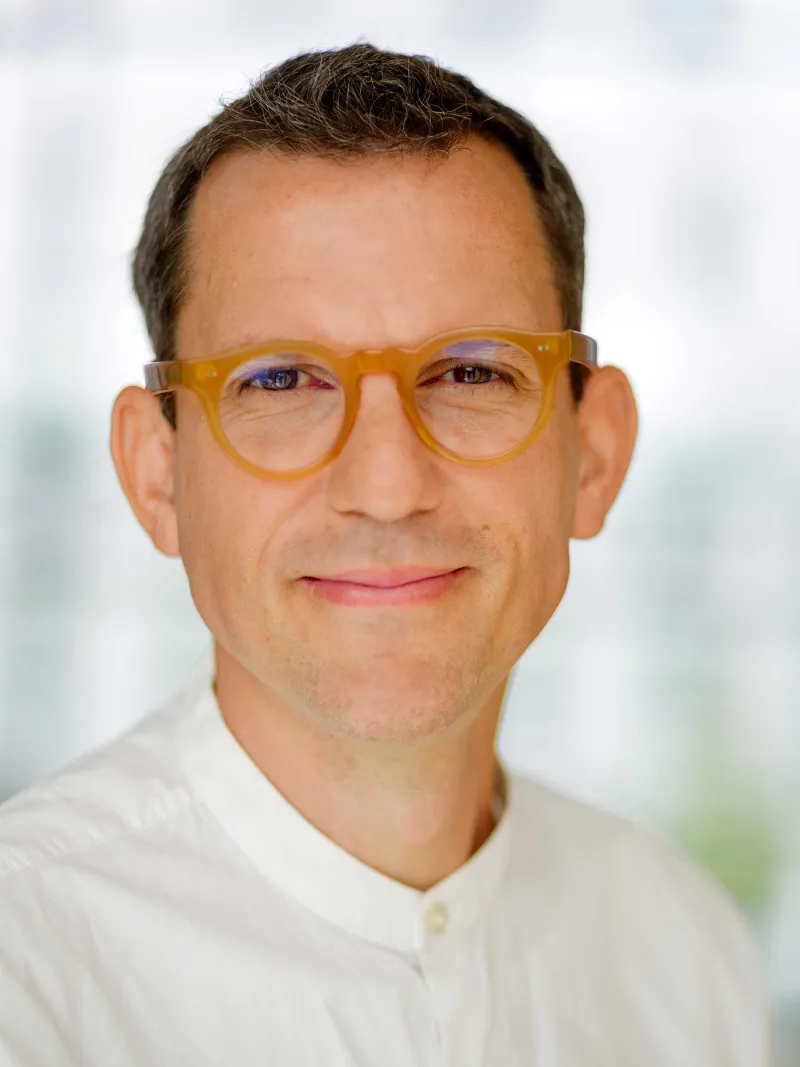Retrospective
Travelling educates: Early Childhood Education students visit kindergartens and the university in Amsterdam
What do kindergartens in Amsterdam look like? What educational concepts are pursued there? And how is it possible that children there start school the day after their 4th birthday? With these questions in mind, a group of students from the Bachelor's degree programme in Early Childhood Education and their lecturers set off on a trip to Amsterdam in May 2025. The degree programme has been cooperating with teachers and students from the University of Applied Sciences Amsterdam since 2024 and after a visit from the Dutch in October 2024, the return visit was now on the agenda.
When someone makes a journey: the outward journey from Berlin main station to Amsterdam should take 5.5 hours according to the DB railway. We actually travelled 11.5 hours - but it was worth it, as the view from the Volkshotel near the University of Amsterdam shows.
Our first visit was to the kindergarten Day Care Mauritsgade - Kinderrijk, located in a large park and a very beautiful building. There is room for 120 children from 0 to 4 years of age. In addition to the spacious rooms and extensive outdoor playgrounds, we were particularly struck by the children, who approached us in a relaxed and curious manner and made contact with us. In order for the children to be so relaxed, they should come to the daycare centre at least three days a week, according to the teachers. They also tell parents this, because unlike in German daycare centres, parents in the Netherlands book daycare by the hour and pay very little each month. Educationally, this daycare centre works according to the concept of Emmi Pikler and Reggio pedagogy, i.e. developmental areas such as autonomy and creativity are strongly encouraged. In addition, according to the law, there must always be at least two educational professionals in a group of 6 to 8 children.
Afterwards, we went to the nature centre called Natuurfontein, where the children only spend time after school to eat and change, otherwise the centre mainly consists of a room with around 8 cargo bikes for 10 children each, which the teachers then take on daily trips outside - whatever the weather. In terms of content, they follow the concept of "risk-free play", i.e. dealing with risky activities on the part of the children - with appropriate safety precautions, of course.
In the afternoon, we had time to explore the city and some of us visited the wonderful exhibition by Anselm Kiefer in the van Gogh Museum.
Our last visit to Amsterdam was to the university, where we were welcomed by Odette Spee, lecturer in education at the university, and Prof Dr Ruben Fukkink, Professor of Child Care at the University of Amsterdam - incidentally the only professor of Child Care in the whole of the Netherlands.
In preparation for our visit, the students had collected some questions for Ruben Fukkink in the workshop, e.g. about the special features of the Dutch education system compared to the German system or about how diversity is dealt with, which is also a social fact in the Netherlands, but is not politically desired.
Ruben Fukkink responded to our questions in detail and an exciting discussion ensued about how professional identity can be further developed through study trips, for example, by marvelling at other pedagogical practices and initiating a process of exchange and reflection that goes far beyond the mere reading of texts.
In October 2025, students from Amsterdam will come to us again and then BABEK students will travel to Amsterdam again, until then: goodbye.
A report by Robert Fischbach, academic assistant on the Education in Childhood programme, and Annette Dreier, Professor of Pedagogy and Education in Childhood.
